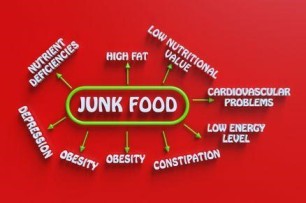General Insurance Blogs, Articles & Updates by - Magma HDI
Have us call you
- RENEW YOUR POLICY
- BUY NEW POLICY

Did you know that you can enjoy a drive-in movie experience without draining your car's battery
The drive-in movie culture has always been popular in foreign countries but has recently become popular in India. These drive-ins provide entertainment opportunities at affordable costs and are a different experience compared to the traditional affairs of watching movies in theatres. Watching a movie with your loved ones, within the comfort of your own car/vehicle, under the spell of the stars and the night sky sounds like a dream.
Now, combine the fantastic experience of the drive-in movie with owning an electric vehicle or any vehicle of your choice. While it all sounds hunky dory, along with enjoying the interiors and familiarity of your car, you need to ensure that your vehicle's battery does not suffer any adverse impacts. Now, why would that happen? Well, most of the time, people keep the air conditioners on, the headlamps on, frequently turning the car on and off, and many other reasons. And, they unknowingly kill the whole drive-in affair!
These components are what make the fun of the drive-in affair! But did you know that you can enjoy a drive-in movie experience without draining your car's battery? Yes, you can. This blog will discuss some tips to help you understand the measures you can take to avoid decreasing the longevity of your battery and depleting the power. Let's get started!
1. Do you need those headlights on?
The duration of a movie lasts somewhere between one and a half to three hours. Keeping your headlamps and other lights switched on can be very draining on your electric vehicle's battery. And if you analyse, you do not need the taillights, and the headlights are always on during the movie.
There is sufficient light in the drive-ins for you to figure out your path and parking whenever needed. And switching off the lights can help you save power to run the car radio optimally, through which you can listen to the movie. The car radio does not substantially impact the battery, so you do not have to worry.
2. What to do about the engine?
You can run your engines for a short while. This would help you charge the battery of your electric vehicle as required. This charge would be sufficient to run the car's audio system to help you gain the optimum movie experience without extreme drainage of your vehicle's battery.
3. Make sure to check the batteries.
Whenever you have a drive-in movie plan, check your car batteries before you head out. If the batteries are old and worn out, they will drain quicker. If you find the battery ready for replacement, get it done. Newer batteries won't drain out as quickly, and you can be far from worrying about the depleting charge. Once you have obtained new batteries, head out for your movies and enjoy the marvellous experience.
4. Portable radio can also be your go-to option.
Usually, drive-in movies use FM radio (Frequency Modulation) to transmit the sound signals from one source to multiple sources. The car's radio helps you tune in to the frequency you can use and then enjoy the movie without any inconvenience. But, this does drain your battery, even in the slightest capacity. To avoid this, you can use portable radios that run on batteries.
Using these options will avoid draining your car's battery. Adding to this list is disconnecting all the additional features and devices like the sub-woofers and the amplifiers from the radio as they would consume more charge and drain the battery during the usage of the radio for the movie audio.
While talking about the longevity and health of your battery, it is also essential to be prepared for any uncertain circumstances that can potentially damage your car. To stay prepared and not be financially pressured during such stressful situations, you must ensure that you purchase the best car insurance that suitably caters to all your needs.
And now, you can buy car insurance online while enjoying the ease and comfort of your home. So, the next time you plan to move out for a drive-in movie or any other adventure in your car, make sure you have car insurance and other important documents handy.
Click HERE to know more about how you can buy car insurance online.
Disclaimer: The information provided above is for illustrative purposes only. To get more details, please refer to policy wordings and prospectus before purchasing a policy.

The smart tips to practise the perfect power nap to revitalise yourself
You might have felt tired and sluggish during the day, especially in the afternoon. This comes as a result of incomplete sleep. You may have been out for a party, a late-night movie, studying for some exam, or working on a presentation. The reasons can be many, but the result is always laziness and low energy levels throughout the next day.
What should you do to come out of this situation? Caffeine can be one solution, but it has a temporary effect, and an overdose can be harmful. A power nap can be blissful in such cases and can make you feel fresh and recharged. Let us go through some smart tips to practise the perfect power nap to revitalise yourself.
1. Appropriate duration:
A power nap is only to revitalise you rather than make you feel sleepy or dizzy and spoil the remaining part of your day. According to several clinical studies, the perfect duration for a power nap is 10-20 minutes. Anything lesser will not do the trick, and a longer power nap will have ill effects rather than a positive impact. You will start feeling sleepier and more irritated if you sleep more.
2. Time:
The perfect time for a power nap is after lunch but before 3 pm. A power nap after that will have a negative impact on your night sleep schedule. You will not be able to sleep properly, spoiling your next day.
3. Set an alarm:
A power nap is meant to be only for a short duration. Hence, use an alarm and set it to ring after 15-20 minutes of sleep. Otherwise, you may keep sleeping for longer and miss your essential work or spoil your routine for the remaining day.
4. Create the perfect environment:
The perfect environment for an instant and effective power nap is a dark, cool, and cosy room without any noise or disturbance. Such an environment signals your body that it is time to sleep and helps you relax. It will help you to take a nap quickly. Otherwise, you may end up trying to sleep forcefully, wasting your time, and still feeling sluggish.
5. Take coffee naps:
Studies suggest that even caffeine can help you achieve your desired power nap. Strange, isn't it? The effect of caffeine usually starts after 15-20 minutes of intake, say through a cup of coffee. You can have coffee, take your power nap instantly, and feel more refreshed and active by the time you wake up.
However, there can be a few disadvantages if you make this a habit. Caffeine can be addictive. It can hurt your memory performance, and you may start forgetting things after days of constant caffeine intake at a stretch.
6. Consistency:
Make your power nap schedule consistent to make it the most effective. Your body will get used to its time and duration. This will help you not oversleep and get refreshed and revitalised on time.
A power nap is an effective way to cure your sleep deprivation. It helps to boost your memory, attentiveness, and alertness while having a positive impact on your mood as well. You feel lighter, refreshed, and full of life.
Just like a perfect power nap is important to have much-needed rest and improved efficiency, a good health insurance policy is rewarding during a health emergency. You feel secure and do not have to worry about the sudden financial burden that an accident or medical emergency can cause. Hence, go for the insurance policy from the best health insurance company in India and lead a happy, stress-free life.
Click HERE to buy insurance from the best health insurance company in India.
Disclaimer: The information provided above is for illustrative purposes only. To get more details, please refer to policy wordings and prospectus before purchasing a policy.

Does junk food attract you? Six reasons why you must stop eating them
Ever heard the saying, "We are what we eat?" Our food habits significantly impact our lifestyle. Everyone is busy in a never-ending race, from office-goers to on-field workers and from school kids to college youth. As a result, our health habits go on a major toll. And eating habits are the most affected among all. Irregular eating time, skipping meals, and feeding on junk food are crucial problems that adversely affect our wellbeing.
It gradually becomes a part of our routine to consume packed food while travelling to work or have a round of burgers or pizzas with friends on the way back home. Consuming excessive junk food can be alarming in the long run. Should you stop munching on junk? It can be daunting to avoid junk food consciously. But do you think it is worth putting your health at stake for momentary pleasures? Certainly not!
Unless you work it off, you cannot help but become obese and get tangled up in a web of health issues. So, if you struggle to control your temptation, this article is for you to understand why it is essential to give up on junk food.
1. Get into the perfect shape:
It is vital to be informed about the harm that junk food can cause to our bodies. Junk foods constitute sugar, sodium, and fat, which makes people gain unwanted weight. By quitting these foods, you can reduce your calorie intake. It is a gradual process; eventually, you could feel a drastic dip in your energy levels.
Take baby steps by initially cutting down high-fat dressing. Consistently skip eating junk, and you will observe your body getting moulded in the perfect shape.
2. Fast food is addictive:
You can quell your hunger pangs with salty, sugary, fatty foods. But over time, you become addicted. It isn't surprising since it's flavourful, instant, and light on the pocket. So, it is almost inevitable for us not to crave badly just to get a bite of it. But you need to cut off the addiction and take a leap of faith to become healthy again.
3. Depression and anxiety:
Junk food consumption takes a toll on a person's mental health in the long term. Vitamin deficiency can cause brain-related problems and affects its growth and functioning. So, think twice before you consume excessive carbs.
4. Vitamin deficiency:
All the caffeinated drinks and greasy, high-fat food only lead to vitamin deficiency. These junk foods don't contain vital minerals, fibre, and healthy fats. This can make your body weak over time and develop uninvited health issues from an early stage of life. At times it can lead to medical emergencies. Invest in a health insurance policy to prevent these emergencies from venting into your pockets.
5. Inconsistency in sleep:
Nothing can be a great killjoy for a sleep-deficient person than junk food. Regular consumption of excess sugary items can hamper your precious sleep time. This would affect your efficiency at work. Thus, cutting down these would make you feel energetic and confident every day.
6. Health problems hit hard:
Regular consumption of oily or processed food can increase blood pressure, high cholesterol, etc., leading to various heart diseases if not controlled in time. The stomach suffers the most with severe pain, irritable bowel syndrome, acid reflux, vomiting, diarrhoea, heartburn, etc.
All the endless health problems junk food can cause are evident. The faster you realise, the quicker you heal! There is nothing greater than good health, and ensuring it is in the best shape is individual responsibility. Staying healthy doesn't mean giving up on the things that you love to do. You need to figure out the healthy alternatives and prevent the flavours of life from fading.
Another healthy habit besides avoiding junk food is to purchase a health insurance plan for you and your dear ones. By doing so, you are already taking a step towards a healthier lifestyle with the comprehensive coverage you can depend on during unavoidable incidents.
Click HERE to buy reliable health insurance for your family.
Disclaimer: The information provided above is for illustrative purposes only. To get more details, please refer to policy wordings and prospectus before purchasing a policy.

Effective guide to ace your skills in city driving
Car driving is a skill we want to ace throughout our lives. It is a constant learning process, and with practice comes perfection. There is no definition of the best car driving skills, but the more we do it, the better we will be at it.
Let us take you through a practical guide to ace your skills in city driving.
1. Know your car inside out:
You need to know your car inside out to master it. Every car's clutch, brake, and accelerator have a different feel. Familiarise yourself with it so that you can adjust yourself accordingly. Nowadays, gear position varies in cars from different companies.
The position of the reverse gear often changes with models, and some cars have six or even seven gears instead of the usual five gears. Know how your car's gears work, so you are fluent in changing them, especially while driving through heavy traffic.
2. Get used to your automatic car:
Automatic cars don't have a clutch. New drivers of automatic cars tend to push the brake, thinking it to be the clutch, especially while driving through traffic. This will bring your car to a sudden halt and put you at the risk of being banged by the vehicle right behind you.
If you have an automatic car, practice driving it on empty roads in the surroundings of your house. You will soon get used to the missing clutch and learn how to drive it skillfully through the busy roads.
3. Get your seating position right:
An appropriate seating position is necessary if you want to ace your city driving skills. Present-day cars come with power seats that can be brought forward or backward at the click of a button. If you are short in height, worry not.
These seats come with seat cushion tilt and height adjustment features as well. Recline the seat as per your comfort, and you are ready to go! Moreover, you can also adjust your car's steering wheel. Proper seating posture can make you feel comfortable and do wonders for your driving.
4. Understand your car features:
Nowadays, cars have many features that can leave us puzzled. Go through your car's various buttons and consoles thoroughly to know how to take advantage of the respective features. For example, cars nowadays come with a "parking assist" feature, making parking much easier on busy streets. Use the features effectively, which will improve your driving experience.
5. Maintain adequate distance:
Ensure that you maintain adequate distance between yourself and the car in front of you while driving through busy city roads. In case the car in the front stops suddenly, you should have a sufficient gap to apply your brakes and stop in time without crashing into the vehicle in front.
6. Use your rear-view and side mirrors:
Rear-view and side mirrors will show you exactly what vehicles are behind you, and you can adjust your direction and speed accordingly in the city traffic. Moreover, these mirrors are very helpful while backing your car and changing lanes.
7. Follow traffic rules:
Last but not least, follow traffic rules! Simple rules like giving an indicator while turning and not using your phone while driving can make you a much better driver in the city traffic.
The above tips will help you ace your city driving skills effectively and make you a better driver. City driving is a challenge, but with the right mindset and following the traffic rules strictly will help you effortlessly glide through the traffic.
Similarly, master the skill of safety, and buy the best car insurance online India. Take one step ahead of others in choosing a policy that will give you the best mix of proper insurance coverage and the lowest premium amount. Be the best, as always!
Click HERE to buy car insurance online India.
Disclaimer: The information provided above is for illustrative purposes only. To get more details, please refer to policy wordings and prospectus before purchasing a policy.


